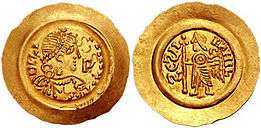712
| Millennium: | 1st millennium |
|---|---|
| Centuries: | 7th century · 8th century · 9th century |
| Decades: | 680s · 690s · 700s · 710s · 720s · 730s · 740s |
| Years: | 709 · 710 · 711 · 712 · 713 · 714 · 715 |
| 712 by topic | |
| Politics | |
| State leaders – Sovereign states | |
| Birth and death categories | |
| Births – Deaths | |
| Establishment and disestablishment categories | |
| Establishments – Disestablishments | |
| Gregorian calendar | 712 DCCXII |
| Ab urbe condita | 1465 |
| Armenian calendar | 161 ԹՎ ՃԿԱ |
| Assyrian calendar | 5462 |
| Bengali calendar | 119 |
| Berber calendar | 1662 |
| Buddhist calendar | 1256 |
| Burmese calendar | 74 |
| Byzantine calendar | 6220–6221 |
| Chinese calendar | 辛亥年 (Metal Pig) 3408 or 3348 — to — 壬子年 (Water Rat) 3409 or 3349 |
| Coptic calendar | 428–429 |
| Discordian calendar | 1878 |
| Ethiopian calendar | 704–705 |
| Hebrew calendar | 4472–4473 |
| Hindu calendars | |
| - Vikram Samvat | 768–769 |
| - Shaka Samvat | 633–634 |
| - Kali Yuga | 3812–3813 |
| Holocene calendar | 10712 |
| Iranian calendar | 90–91 |
| Islamic calendar | 93–94 |
| Japanese calendar | Wadō 5 (和銅5年) |
| Javanese calendar | 605–606 |
| Julian calendar | 712 DCCXII |
| Korean calendar | 3045 |
| Minguo calendar | 1200 before ROC 民前1200年 |
| Nanakshahi calendar | −756 |
| Seleucid era | 1023/1024 AG |
| Thai solar calendar | 1254–1255 |
| Wikimedia Commons has media related to 712. |
Year 712 (DCCXII) was a leap year starting on Friday (link will display the full calendar) of the Julian calendar. The denomination 712 for this year has been used since the early medieval period, when the Anno Domini calendar era became the prevalent method in Europe for naming years.
Events
By place
Byzantine Empire
- The Bulgars under Tervel, ruler (khagan) of the Bulgarian Empire, raid Thrace and reach the city walls of Constantinople. Skirmishes continue until 716; Emperor Philippicus transfers a Byzantine army from the Opsikion Theme in Asia Minor, to police the Balkan Peninsula.
Europe
- February – King Ansprand dies, and is succeeded by his son Liutprand as ruler of the Lombards. During his reign, Liutprand becomes the greatest of the Lombard Kings. Coins and documents from his court at Pavia confirm the impression of a strong and effective monarch.[1]
Arabian Empire
- Umayyad conquest of Hispania: From North Africa, Musa ibn Nusayr lands in Iberia (Al-Andalus), with an army of 18,000 Berbers and Arabs. He joins the Islamic conquest and captures the city of Seville (Andalusia), where he meets stiff resistance after 3-months of siege.
- Arab forces under Qutayba ibn Muslim conquer Khwarezm and Samarkand (modern Uzbekistan).
Asia
- September 8 – Emperor Rui Zong abdicates after a brief reign, in favor of his 27-year-old son Xuan Zong, who ascends the imperial throne of the Tang Dynasty (China).
- Xuan Zong reestablishes its control over the Oxus and Jaxartes valleys. During his reign he defeats the invading Arab armies, in a series of campaigns in Fergana.[2]
- King Dae Jo-yeong of Balhae (Korea) resumes tributary payments to the Tang Dynasty. The Tai peoples are forced to accept Chinese sovereignty (approximate date).
By topic
Literature
Births
- Abdallah ibn Ali, Muslim general (approximate date)
- Du Fu, Chinese poet (d. 770)
- Rupert of Bingen, patron saint (d. 732)
- Theuderic IV, king of the Franks (approximate date)
Deaths
- Ali ibn Husayn, fourth Shia Imam
- Ansprand, king of the Lombards
- Aripert II, king of the Lombards (or 711)
- Bran ua Máele Dúin, king of the Uí Ceinnselaig (Ireland)
- Cú Cherca mac Fáeláin, king of Osraige (Ireland)
- Fazang, Chinese Buddhist patriarch (b. 643)
- Idwal Iwrch, king of Gwynedd (Wales)
- Khri ma lod, empress of the Tibetan Empire
- Vindicianus, bishop of Cambrai (approximate date)
References
This article is issued from Wikipedia - version of the 11/20/2016. The text is available under the Creative Commons Attribution/Share Alike but additional terms may apply for the media files.
